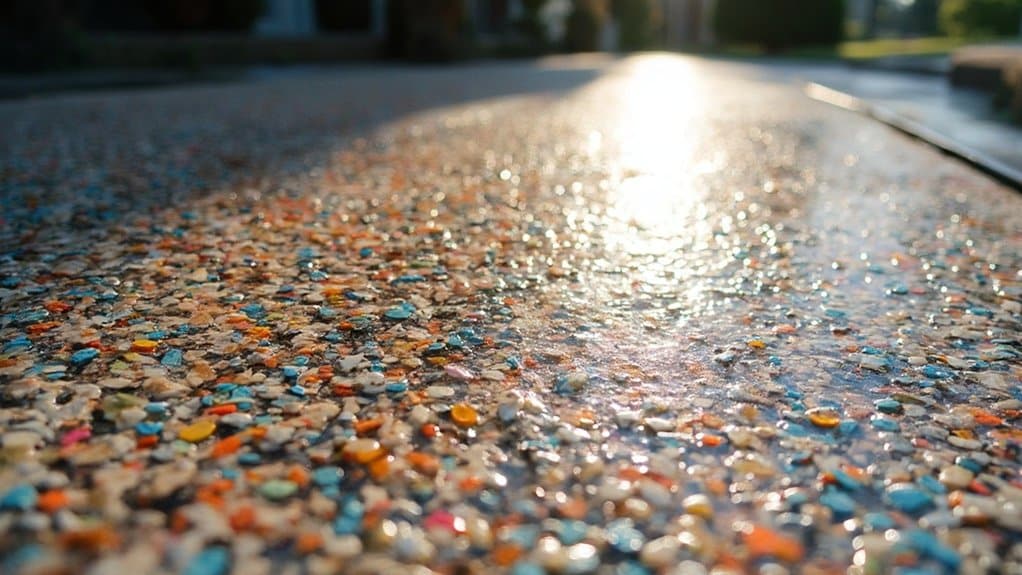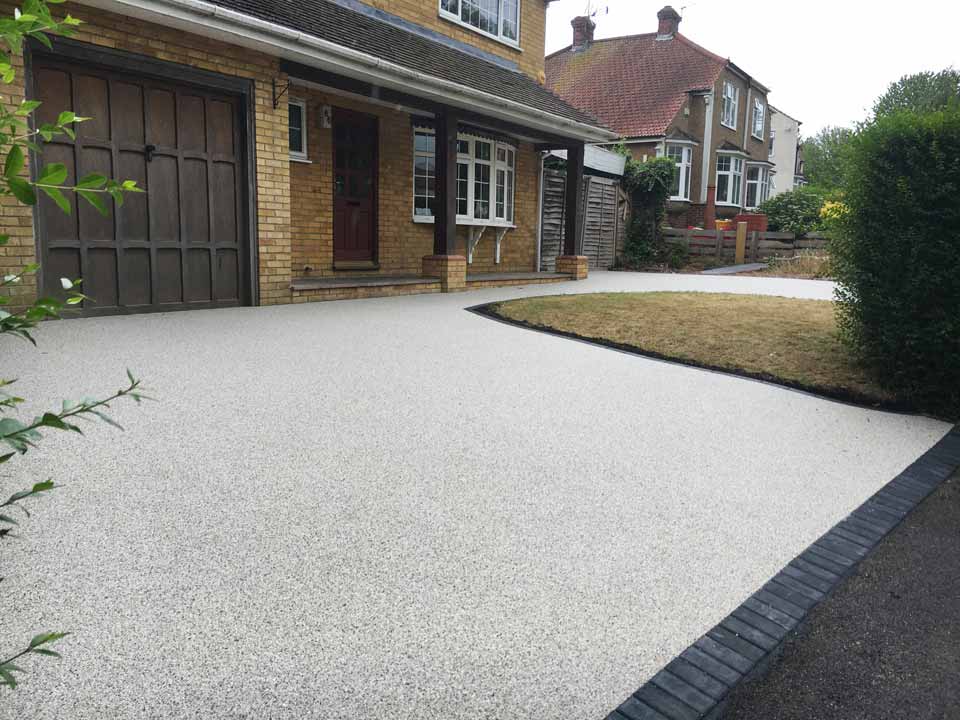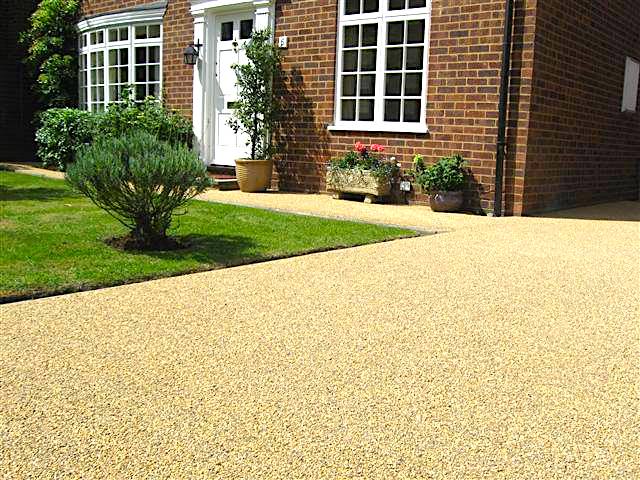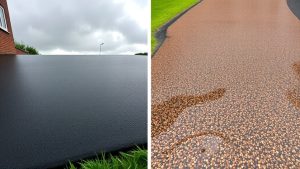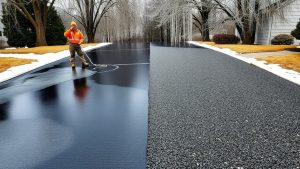Yes, you can lay a resin driveway over concrete or tarmac, but it’s crucial to ensure the base is in good condition. The concrete must be free from cracks and properly primed, while the tarmac should be laid on a suitable sub-base. Both surfaces need to be clean and dry before applying the resin. Proper preparation and adherence to regulations can significantly improve durability. For a successful installation, take the time to check these factors thoroughly.
Table of Contents
ToggleKey Takeaways
Yes, you can lay a resin driveway over concrete or tarmac, provided the base is in good condition and properly prepared.
For concrete, ensure it’s free from cracks and apply a primer for better adhesion with the resin. Tarmac tends to cure faster than concrete, which can speed up the installation process.
It’s essential to clean and dry both surfaces before starting to ensure a strong bond with the resin. Don’t forget to comply with drainage regulations for both types of bases when installing your resin driveway.
Understanding Resin Driveways
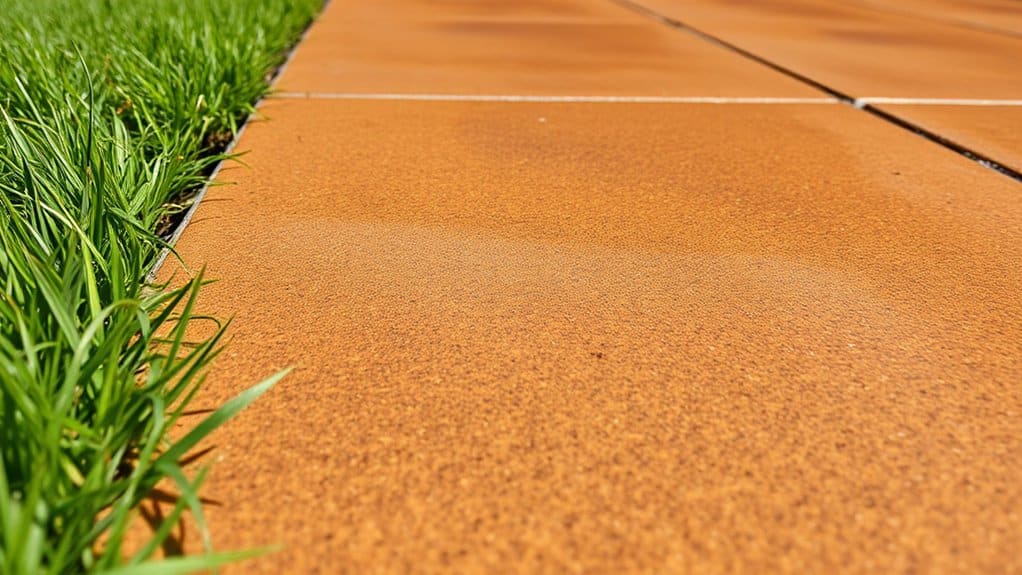
Resin driveways are a modern surfacing option that combines practicality with style. Their durable resin composition makes them last longer than traditional materials like concrete and tarmac, making them a smart investment for homeowners. To ensure a successful installation, it is essential to prepare a strong concrete/tarmac base that can support the intended use. Available in a range of colours and designs, resin driveways can be tailored to suit your personal taste. They require very little maintenance, as they’re resistant to weeds and cracking, helping to keep your driveway looking good over time. Some are permeable, allowing for effective drainage and meeting environmental regulations, which is crucial for maintaining a sustainable surface.
Evaluating Concrete as a Base
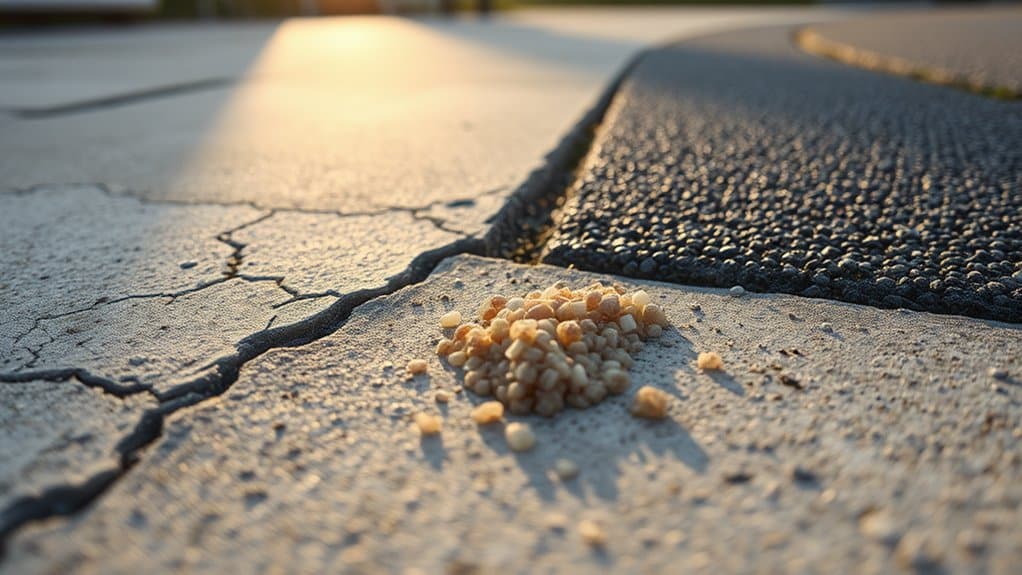
When assessing concrete as a base for your resin driveway, it’s crucial to consider its durability and stability, especially in high-traffic areas.
Concrete is strong and suitable for such uses, but it must be in good condition—free from cracks and uneven surfaces. A primer is necessary for non-porous concrete to ensure proper adhesion between the concrete and the resin. Additionally, using a resin-bound primer can enhance the bond between the resin and the concrete surface. Furthermore, ensuring that the concrete is SUDS compliant can improve water drainage and prevent issues related to moisture buildup.
Also, ensure the concrete is fully cured, which typically takes about 28 days, before applying the resin. Be mindful of moisture; applying resin to wet concrete can cause damage or delamination.
On the other hand, porous concrete has advantages like efficient drainage and compliance with Sustainable Urban Drainage Systems (SUDS), making it a great option for both new and existing bases.
Assessing Tarmac/Asphalt as a Base
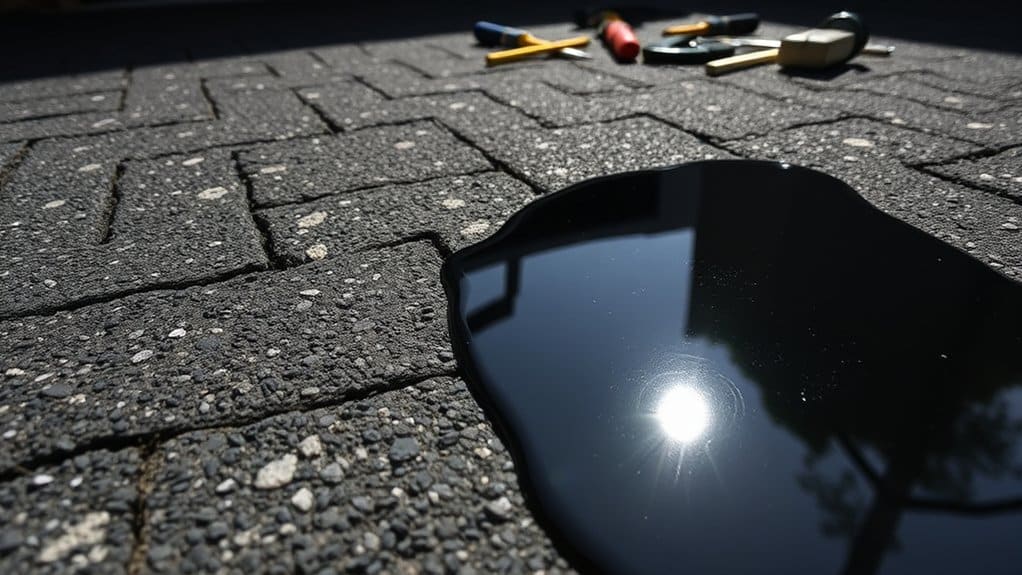
Assessing Tarmac/Asphalt as a Base
Evaluating tarmac or asphalt as a base for your resin driveway offers several advantages. Tarmac’s durability and permeability make it a strong choice, but be mindful of potential installation issues.
- Quick curing time: Tarmac typically cures faster than concrete, enabling quicker installation of your resin surface.
- Cost-effective: For larger projects, tarmac can be more economical than other materials.
- SUDS compliance: It usually meets sustainable drainage requirements, improving water management. Additionally, make sure your tarmac is laid on a suitable sub-base, ideally at a depth of 50-70 mm and with a pen rating of 100-150 for optimal performance, to ensure adequate support for the resin system. Proper preparation is key to a successful resin installation, as durability and longevity are crucial for the overall performance of the driveway.
Comparing Resin Driveways With Other Surfacing Options
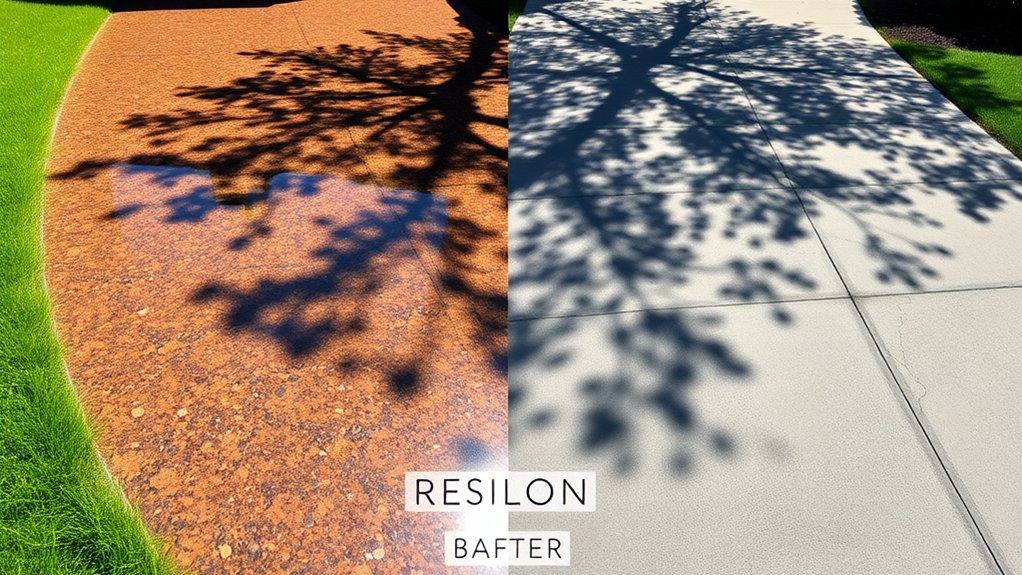
When choosing a driveway, it’s important to weigh the pros and cons of resin surfacing against alternatives like concrete, tarmac, and gravel.
| Feature | Resin Driveways |
|---|---|
| Cost | Higher initial cost |
| Durability | Less suitable for heavy traffic |
| Maintenance | Minimal required |
| Aesthetic Appeal | Highly customisable |
| Drainage | Permeable, supports SUDS |
Resin driveways offer a visually attractive finish and are resistant to weeds. However, while they may have a higher upfront cost, concrete could be more economical over time due to its longevity. Your final choice will depend on your specific needs, such as aesthetic preferences and the amount of traffic your driveway will experience.
Installation and Preparation Process
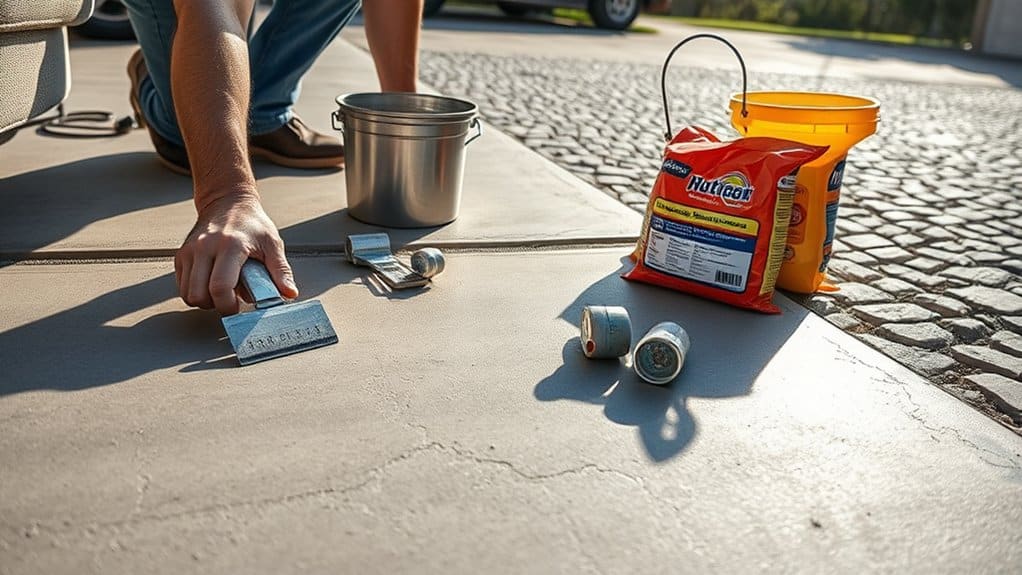
For a successful resin driveway installation, careful preparation and following specific steps are crucial. Begin by ensuring the base of your existing concrete or tarmac surface is stable. Here’s how to proceed:
- Prepare the area: Thoroughly clean and dry the surface, ensuring there are no weeds or debris.
- Mix the resin: Combine components A and B in a bucket, then use a forced action mixer to blend with aggregate.
- Lay the mix: Pour the mixture over the prepared area and level it out with a squeegee.
Timing is essential during the mixing process; you have about 10-15 minutes to apply the mixture before it begins to cure.
A well-prepared base is vital for durability, helping to prevent cracks and ensuring your driveway lasts for years.
Regulatory Compliance and Considerations
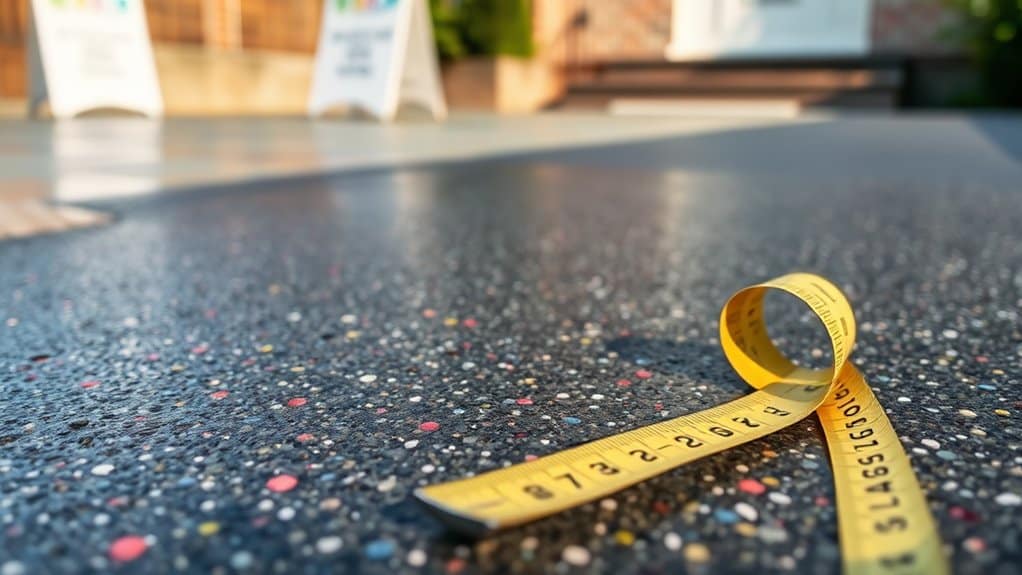
When installing a resin driveway, it’s crucial to follow regulatory guidelines that ensure both safety and environmental protection. Key regulations, such as Sustainable Drainage Systems (SuDS) and REACH, play a significant role in the success of your project. Regular compliance checks and obtaining BBA certification are essential steps to meet safety standards and ensure lasting durability.
| Compliance Aspect | Importance |
|---|---|
| SuDS Regulations | Helps manage water drainage and runoff |
| REACH Training | Ensures safe handling of materials like diisocyanates |
| BBA Certification | Confirms product durability |
Frequently Asked Questions
How Long Does a Resin Driveway Last Compared to Other Options?
Resin driveways generally last between 15 to 25 years, depending on how well they are installed and maintained. In comparison, concrete driveways can last 20 to 40 years. While resin provides a more flexible and low-maintenance option, concrete may edge it out in terms of longevity.
Can I Install a Resin Driveway Myself?
You can install a resin driveway yourself, but it demands careful preparation and a good understanding of the installation process. Follow DIY tips for mixing, spreading, and curing to ensure a successful and long-lasting finish. For example, make sure the base is well-prepared and level before you start, as this will help avoid issues down the line.
What Colors and Finishes Are Available for Resin Driveways?
For resin driveways, you can choose from a variety of colours, ranging from natural earth tones to vibrant shades. The finish options include resin-bound, which provides a smooth surface, and resin-bonded, which offers a textured feel. This allows you to personalise the look of your driveway to suit your style.
Is Resin Driveway Installation Affected by Seasonal Weather?
Yes, resin driveway installation can be impacted by seasonal weather. Factors like moisture, cold temperatures, and humidity can affect the curing process and the quality of the surface. It’s best to aim for conditions above 5°C to ensure a strong and reliable resin surface. For instance, attempting to install a resin driveway during a rainy spell or frost can lead to issues down the line.
How Can I Enhance the Grip on a Resin Driveway?
To improve grip on your resin driveway, look into using resin additives designed for slip resistance and consider applying surface texturing methods. These approaches will help create a safer and more durable surface, minimising risks during wet or icy weather. For instance, adding a gritty material can significantly enhance traction, making it safer for pedestrians and vehicles alike.
Conclusion
In summary, you can lay a resin driveway over concrete or tarmac, as long as you assess the base’s condition and prepare it properly. Just like the Romans built their roads for durability, you need a solid foundation for your resin surface. By following the installation guidelines and regulations, you can enhance your property’s appeal and longevity. Whether you have a modern home or a traditional cottage, a resin driveway can significantly boost your curb appeal.
Whilst it is true that there are certain conditions required in order to lay a resin bound stone patio, pathway Read more
If your driveway is looking old and tired, a new one can help revamp your property. Modern driveways are available Read more
APPROVED RESIN BOUND DRIVEWAY INSTALLERS LOCAL TO YOU! Find out More Get in Touch Get a Free Quote Book an Read more

